Front and Center: Venessia Randle
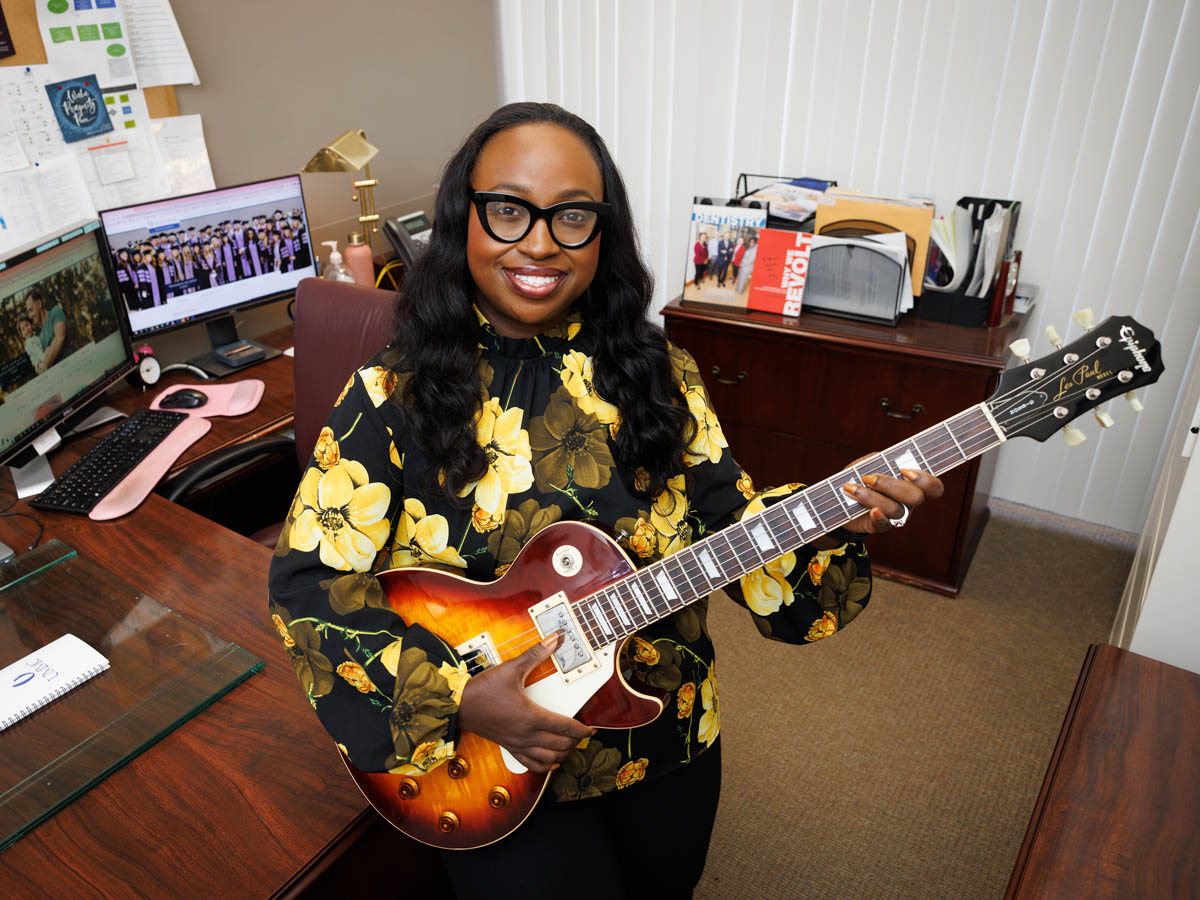
In the 1990s, Venessia Randle—then Venessia Young—spent her afternoons at the Carnegie Public Library where she would read while she waited for her mom to get off work. Randle said she would sometimes hear music coming from the second floor.
She didn’t know it at the time, but the second floor of the library housed the Delta Blues Museum. Curious, she went up to investigate and was soon spellbound by the soulful sound of Mississippi Delta Blues.
Every day, from then on, Randle would go upstairs to the Blues Museum after school and listen to two songs on repeat: Big Mama Thornton’s “Hound Dog” and John Lee Hooker’s “Boom Boom”. The man who would be Randle’s mentor noticed how interested she seemed to be in blues music.
She said after seeing her visit the museum’s CD player several days in a row, the man approached her. “He said, ‘You like that blues music, don’t you? Do you want to learn how to play it?’”
Listen to this 2008 recording of "I'm Gone" below – one of Venessia Randle's recordings where she plays guitar, piano and sings. Accompanying her is her sister, who plays the bass.
This began the other career of Venessia Randle, project manager for the School of Dentistry, as an acclaimed blues musician before she began working for the University of Mississippi Medical Center. As a teen, Randle performed at shows and festivals across Mississippi, Nashville, Norway, and even Washington D.C., for the president of the United States.
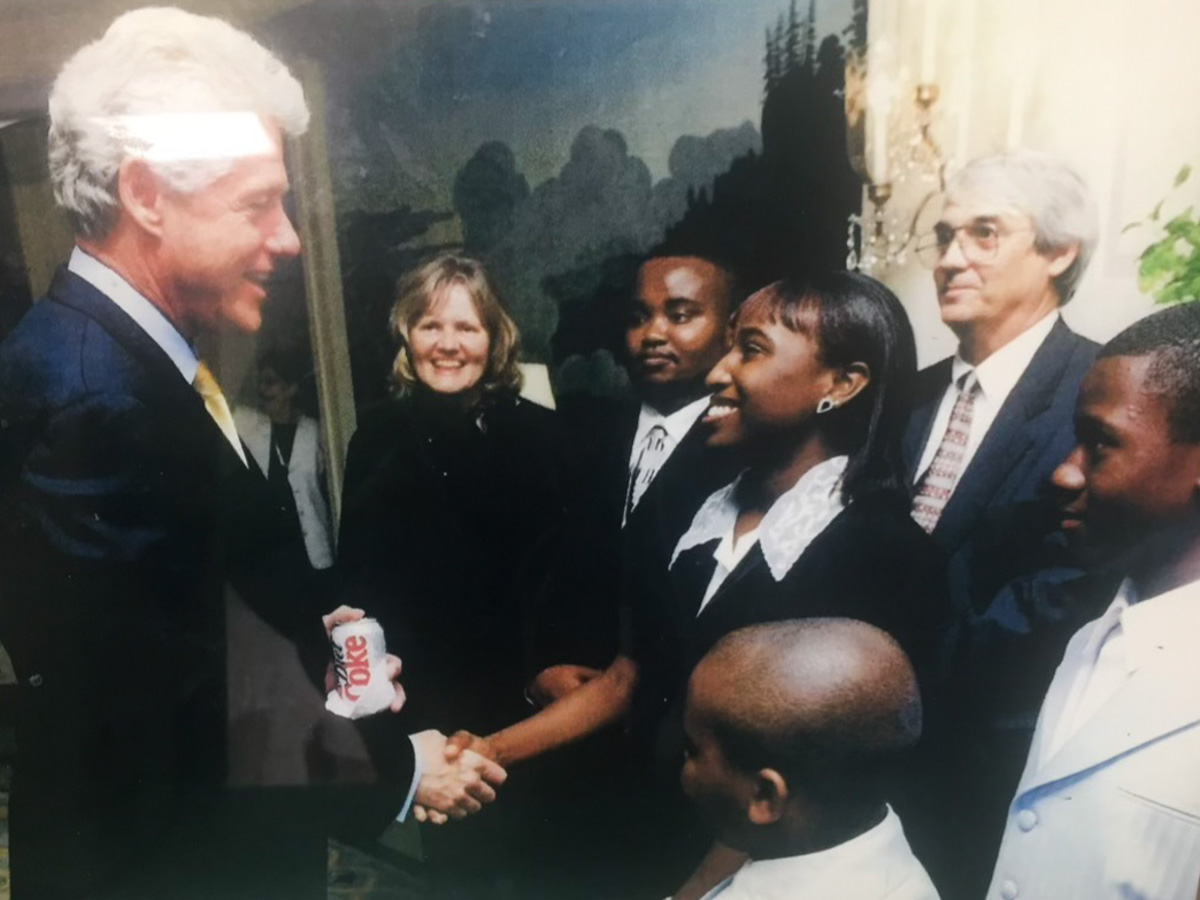
Randle, who celebrated 10 years with UMMC last year, grew up in Clarksdale, where she became the first student of the Delta Blues Museum’s Arts and Education Program at the age of 12.
Local blues musician turned mentor, Johnnie Billington, secured grant funding from the Mississippi Arts Commission and established the Delta Blues Education Fund to support his music instruction program for Delta youth. The Delta Blues Museum soon recruited Billington and launched the Delta Blues Museum’s Arts and Education Program, which would go on to garner national and even international recognition.
The purpose of the program is to continue the musical tradition of the Delta Blues by teaching young people about its rich history and how to play. Michael “Dr. Mike” James, a blues musician mentored by Billington, joined the program as an instructor. Initially, Randle noted that the program's organizers were uncertain about student recruitment. However, fate intervened, introducing Randle—a passionate young blues enthusiast who quickly enlisted other students for the program.
James worked with her and the other students every day after school, teaching them many classic blues songs, how to play the instruments, and how to play together as a band. Randle said she started out learning keyboard and bass guitar but was soon encouraged to start playing lead guitar.
“At the time, I only had a little bit of formal music education,” Randle said. “I had taken piano lessons, but I had never attempted to play guitar or anything like that.”
The students of the program formed the Delta Blues Museum Band, which created numerous opportunities for students to travel and perform at events and festivals from Nashville to Norway. The
band was even invited to the White House in 2000 to perform at the reception of the U.S. Department of Transportation’s national conference,.
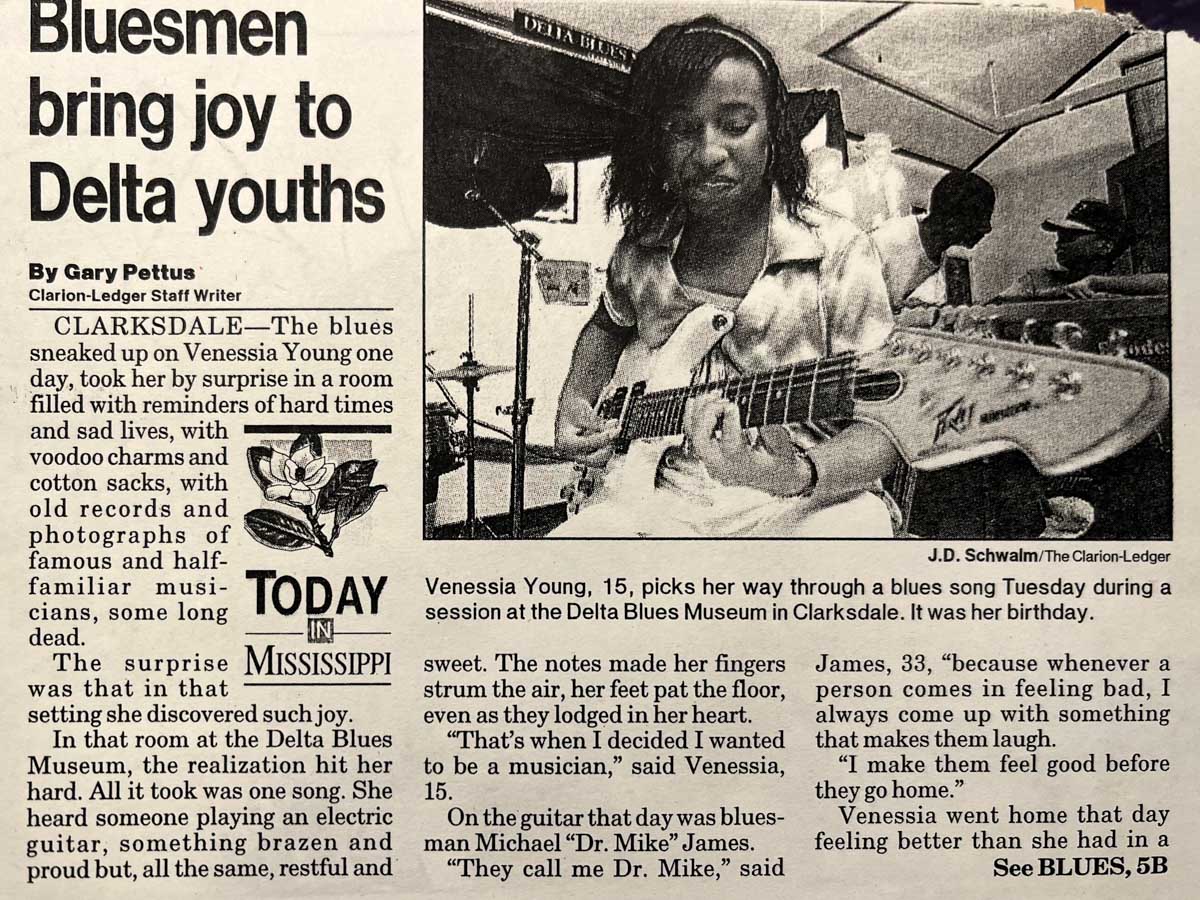
“A lot of places that I travelled during my formative years with the education program, I never would have been able to see on my own,” said Randle. “Those opportunities helped expand the minds of those students because, if not for the program, a lot of them would have never left the Delta and been able to see things like that.”
At 15, after just three years in the program, the museum hired her as a teaching assistant. That same year, she started Pure Blues Express, an all-girls blues band, with her younger sister Fazenda Young, who played bass, and Lynn Williams on drums. After Williams enlisted in the Army, the band performed with several male drummers. But the sisters became an inseparable musical duo.
The pair participated in a student exchange program with the Delta Blues Museum and a blues festival youth seminar in Clarksdale’s sister city Notodden, Norway. Norway, as it happens, loves the blues. And the Notodden Blues Festival is one of the largest blues music festivals in Europe.
“My sister and I both got to go to Norway, where we stayed for two months,” said Randle. “We practiced 17 hours a day and those kids were phenomenal. Just being able to play with them, we learned so much, because that is all they did. I have never seen anything like it. The police had a blues band. Kindergarteners had a blues band. Blues, over there, is huge.”
As part of the blues experience, each year, forty 14 to 18-year-olds are chosen to participate in the festival’s youth seminar . Instructors with backgrounds ranging from studio to touring to television mentor students on the disciplines of harmony, playing by ear, instrument/equipment maintenance and the music business. The seminar closes at the festival, where students perform a concert.
It was during this seminar that Randle got a taste of studio recording.
“I used to sing all the time, but I was always afraid to sing in the studio,” she said. “But one of the girls who was supposed to sing St. James Infirmary by Bobby Bland was out sick one day, and I told my peers, ‘Oh I can sing that song’— not realizing my teacher was standing right outside the door. And he was so excited, he took the other girl off and had me record the song.”
Randle said that her musical style was influenced by older blues musicians, noting artists such as B.B. King, Muddy Waters, Howlin’ Wolf and Buddy Guy. She listens to some urban blues as well, she said, but nothing beats the authentic, Delta Blues sound.
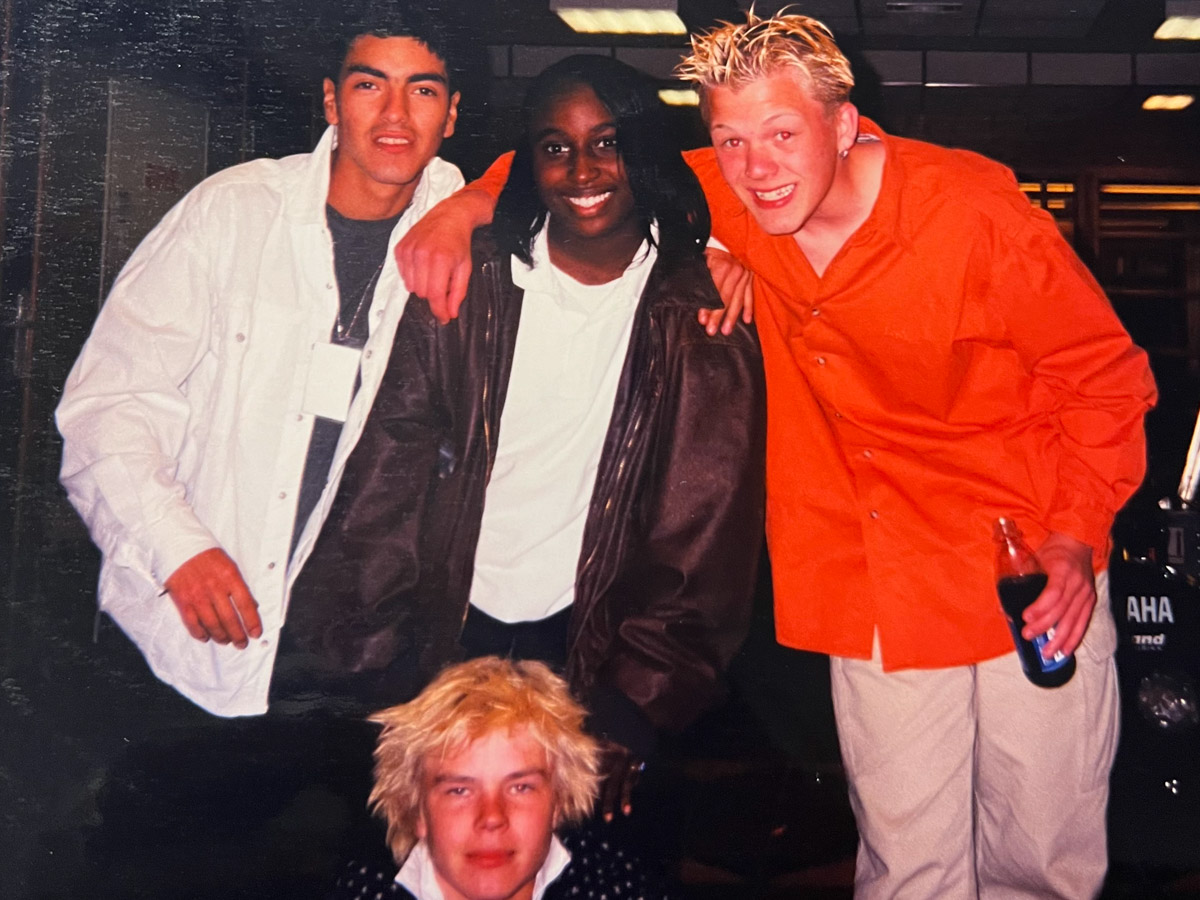
"One of my biggest musical influences is Buddy Guy,” said Randle. “He was one of the first people that I saw live that played like he played. I loved his eclectic polka dot guitars. I loved his stage presence. I loved how the audience was so captivated by him. Seeing him strutting around the coliseum—that was the first time I had seen a performance that just left me in awe. I remember thinking ‘I want to play like that.’”
People in Randle’s hometown were certain she would go straight into a career in music after she graduated from high school. Though she would never give up her passion for the blues or dedication to the arts and education program, she was wise to some harsh realities about the entertainment industry.
“Growing up, I saw so many of my blues idols that were performing that I thought would have been rich; but when you see behind the scenes, a lot of them were very poor,” Randle said. “They were starving artists. So growing up in a rural town, poverty was the last thing I wanted to sign up for.”
Her mom, Katherine Young, assured her that with her talent, music would always be there for her—but that learning how to navigate the business landscape was important too.
While pursuing her degree in IT at Mississippi State University, Randle continued to perform at music festivals and work for the Delta Blues Museum—teaching in the arts and education program and working in the museum gift shop during the weekends. Her peers in college didn’t know their classmate had been covered in newspapers and magazines or that she opened for B.B. King on multiple occasions, but they would soon discover her talent as a blues musician.
“When I was at Mississippi State, they had a blues band on campus playing for an event and one of the artists saw me in the audience and he remembered me from the Delta Blues Museum, and he was like ‘You play, don’t you? You’ve got to get up here and play.’ So I ended up playing on stage at Mississippi State in front of my peers who had no idea I did that.”
After graduating college in 2006, she spent a few years in insurance before switching gears to health care, joining UMMC in 2013. In 2019, she took on a new role as the project manager for the School of Dentistry, where she feels she has found a home.
“I can’t see myself anywhere else,” she said. “I love the climate here. I feel like when you work on the main campus, you can get lost in the shuffle because it’s so big. And at the School of Dentistry, I feel like people started to learn more about who I am outside of what I do. Because of that, I’m able to bring more of myself and my skills into my job here.
And working for Dr. Koka—he's just an amazing person. He helps us not just with our professional development but also with our personal development. He’s helped transform my life. A lot of people wouldn’t know that he’s my accountability partner. Over the past two years, he’s helped me lose 150 pounds.”
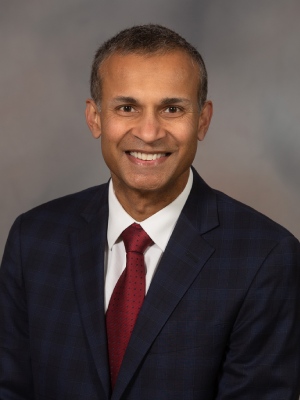
“Venessia is a remarkable person who, every day, makes our school better through her generous spirit and her dedication to taking on new challenges,” said Dr. Sreenivas Koka, dean of the School of Dentistry. “She is open-minded and incredibly creative. Venessia has become the person that many people in our school rely on to get things done both quickly and well. She is definitely a role model for me.”
Randle took some time away from performing for a few years, but, with encouragement from her support system, she is ready to follow her passion again.
“I went through some traumatic losses and during that time I retired from music for a long while, but I’m slowly getting back to that place where I am playing and gigging again,” Randle said. “This year, 2024, will probably be the year that I return to my roots as a musician.”
When she retired from music, she said her mother never let her give up hope. “She is the one person who kept saying ‘you’re going to get back to it.’ She has always been the driving force in my life. ”
When Randle returns to the stage, she said she won’t be going it alone. “We will have to find a drummer, but I know that my sister will be with me because she is the other half of me on stage. I can play solo, but I always prefer to play with my sister.”
Kicking off Randle’s return to music, the sibling duo will perform at the School of Dentistry’s “Lunchtime Live” this summer.


